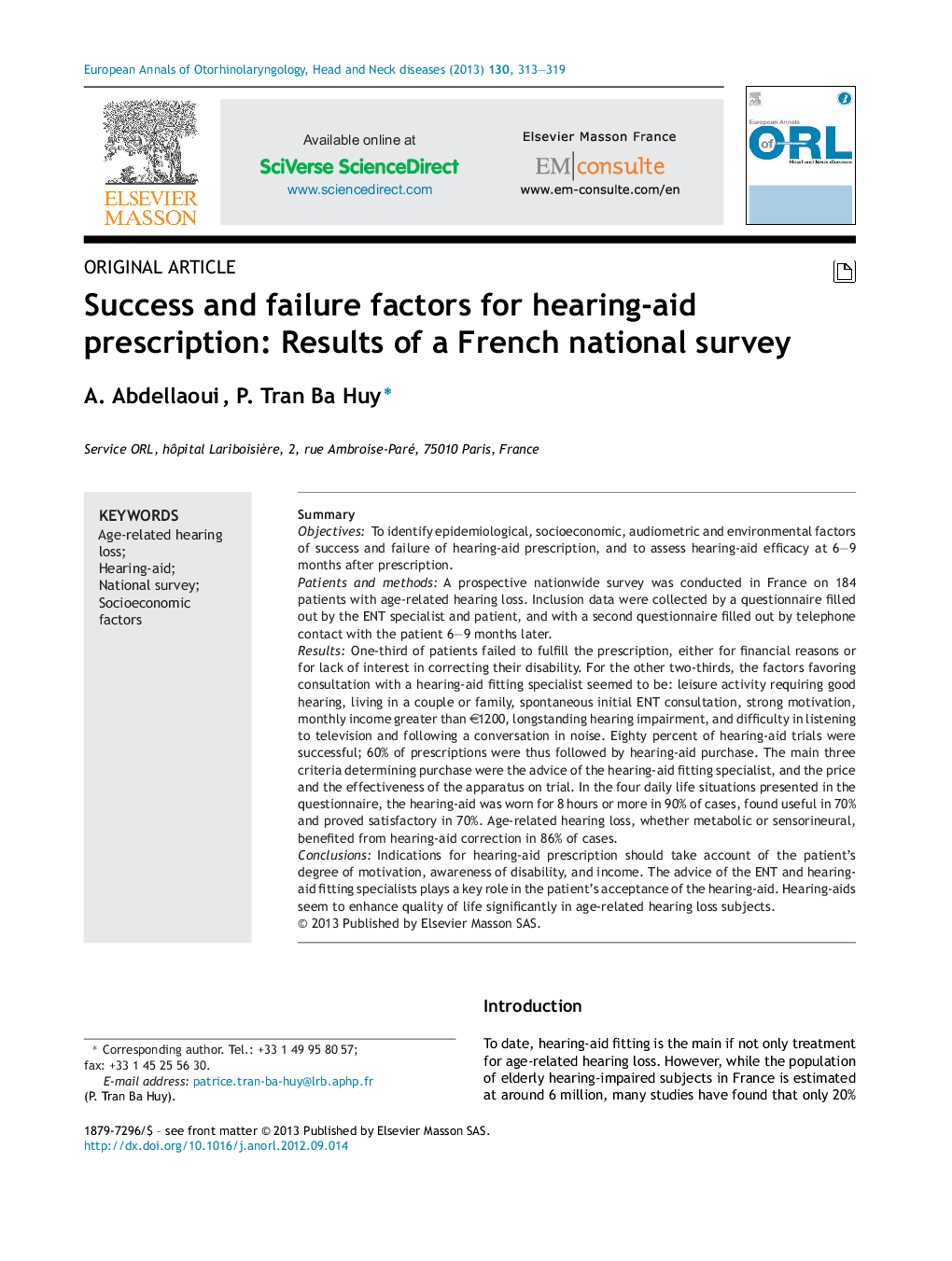| کد مقاله | کد نشریه | سال انتشار | مقاله انگلیسی | نسخه تمام متن |
|---|---|---|---|---|
| 4110063 | 1605733 | 2013 | 7 صفحه PDF | دانلود رایگان |

SummaryObjectivesTo identify epidemiological, socioeconomic, audiometric and environmental factors of success and failure of hearing-aid prescription, and to assess hearing-aid efficacy at 6–9 months after prescription.Patients and methodsA prospective nationwide survey was conducted in France on 184 patients with age-related hearing loss. Inclusion data were collected by a questionnaire filled out by the ENT specialist and patient, and with a second questionnaire filled out by telephone contact with the patient 6–9 months later.ResultsOne-third of patients failed to fulfill the prescription, either for financial reasons or for lack of interest in correcting their disability. For the other two-thirds, the factors favoring consultation with a hearing-aid fitting specialist seemed to be: leisure activity requiring good hearing, living in a couple or family, spontaneous initial ENT consultation, strong motivation, monthly income greater than €1200, longstanding hearing impairment, and difficulty in listening to television and following a conversation in noise. Eighty percent of hearing-aid trials were successful; 60% of prescriptions were thus followed by hearing-aid purchase. The main three criteria determining purchase were the advice of the hearing-aid fitting specialist, and the price and the effectiveness of the apparatus on trial. In the four daily life situations presented in the questionnaire, the hearing-aid was worn for 8 hours or more in 90% of cases, found useful in 70% and proved satisfactory in 70%. Age-related hearing loss, whether metabolic or sensorineural, benefited from hearing-aid correction in 86% of cases.ConclusionsIndications for hearing-aid prescription should take account of the patient's degree of motivation, awareness of disability, and income. The advice of the ENT and hearing-aid fitting specialists plays a key role in the patient's acceptance of the hearing-aid. Hearing-aids seem to enhance quality of life significantly in age-related hearing loss subjects.
Journal: European Annals of Otorhinolaryngology, Head and Neck Diseases - Volume 130, Issue 6, December 2013, Pages 313–319